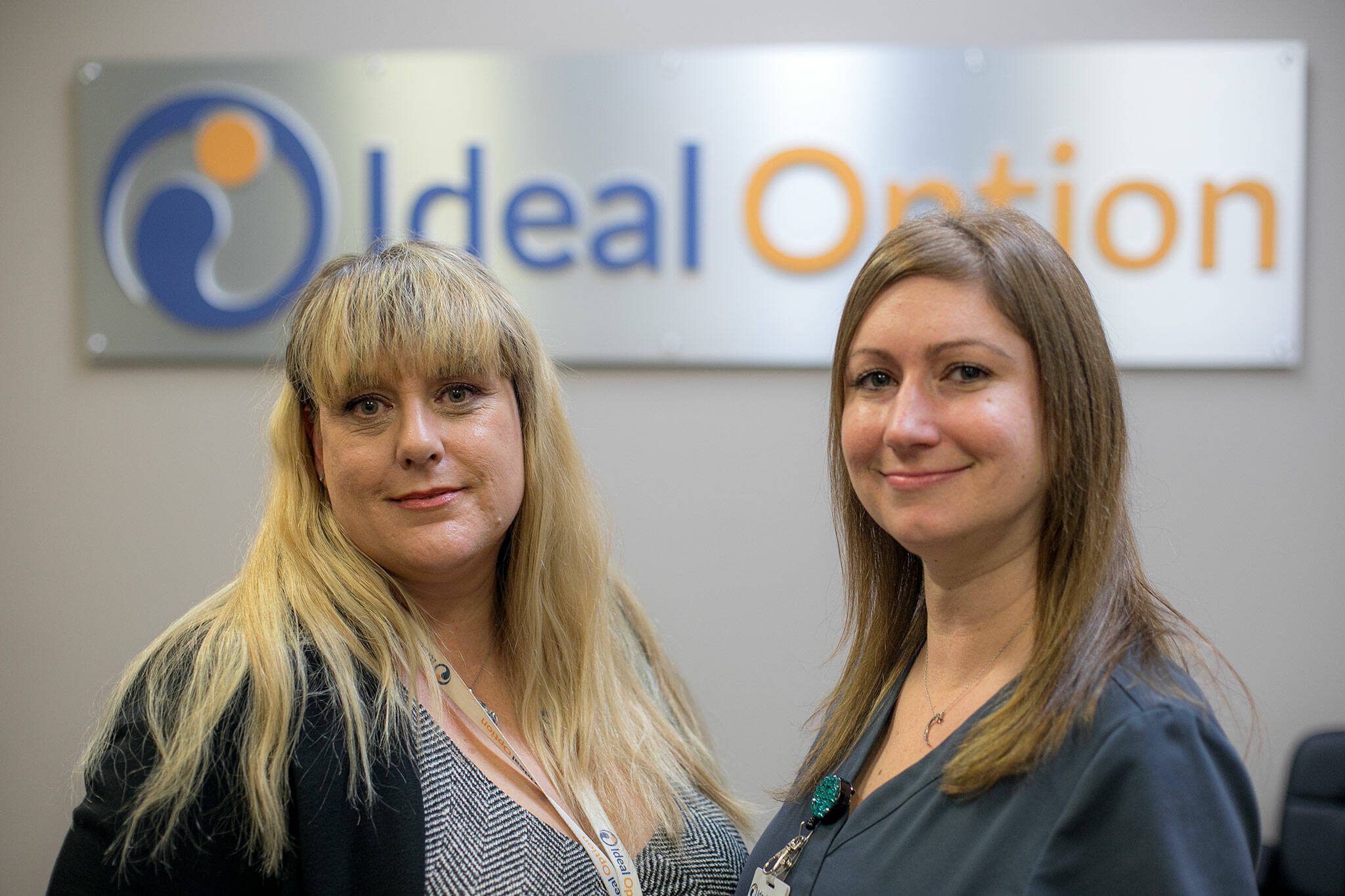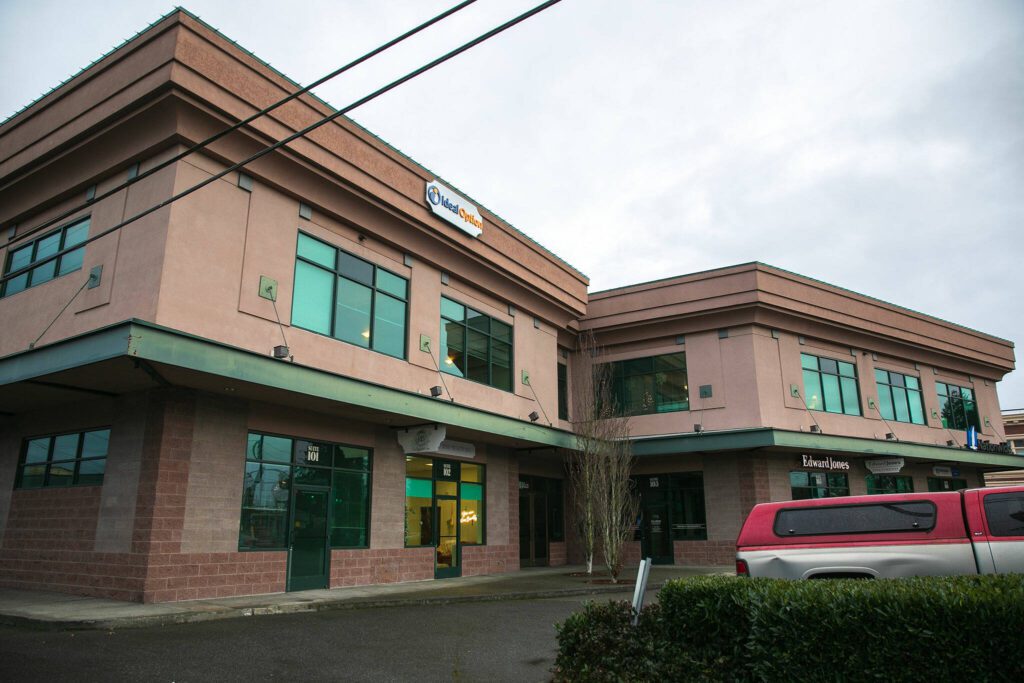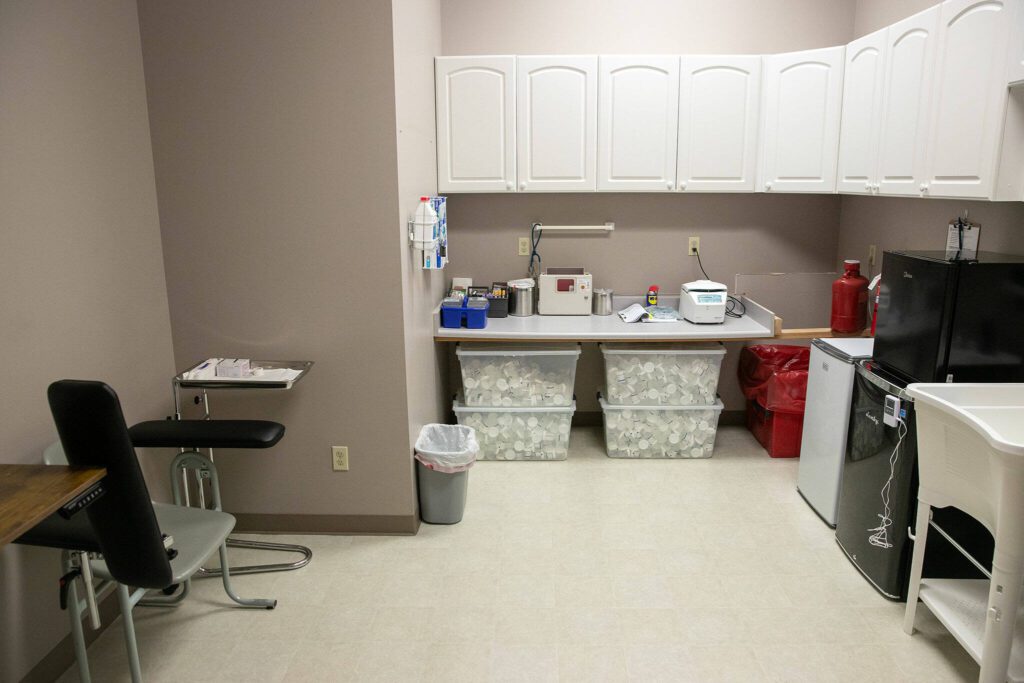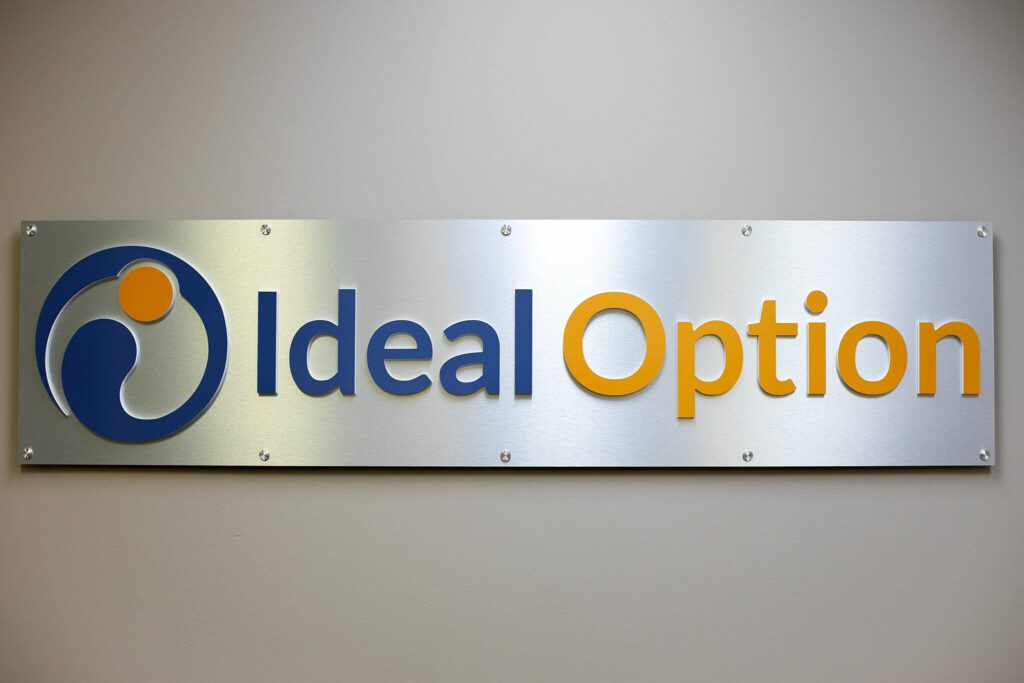MONROE — Josh Morrison meets five to 10 patients daily to help them recover from drug and alcohol addiction. He would like to help more — 30 to 50 patients.
But not enough people know about Ideal Option’s new medication-assisted treatment clinic in Monroe, where Morrison is the onsite provider. The clinic at 101 East Main St. opened in November, three years after the company shuttered another clinic in Monroe’s industrial district due to the pandemic and the clinic’s inaccessible location.
The new downtown clinic is more convenient for Monroe residents, said April Provost, the outreach coordinator for Ideal Option. And it’s on a bus line to provide better access for those outside Monroe who may not have a treatment clinic nearby.
Ideal Option has more than 90 recovery clinics in nine states, including 27 in Washington. The clinics provide medication-assisted treatment for drug and alcohol addiction, primarily opioids.
Since 2021, opioids have caused more than 650 overdose deaths in Snohomish County. Last year, fentanyl — a synthetic opioid about 50 times more potent than heroin and 100 times more potent than morphine — was involved in 226 fatal overdoses.
Provost, who is in recovery from opioid addiction, lived in Monroe for several years. She said one of the biggest barriers to her recovery was finding resources on her own.
“People are asked to follow through for treatment Monday, or next week,” she said. “It’s not realistic. When you’re in that place, all you can think about is finding your next fix. There were times I didn’t even know what day it was.”
For patients at the Monroe clinic, treatment often starts with meetings twice a week. If Morrison happens to be booked, patients can use spacious meeting rooms with desktops to virtually meet with another provider. And Ideal Option’s care team checks in with patients daily.
“I see patients come in who are 19 years-old, I see patients in their 70s,” said Trisha King, a nursing assistant at the clinic. “We help people from all walks of life.”
Deborah Knight, spokesperson for the city of Monroe, said she isn’t aware of a “high number” of people using drugs or dying from overdoses in the city. But she is aware of a lack of local resources, she said, and people are “going a great distance outside of the community to get treatment.”
It’s important to increase prevention, treatment and recovery resources in Monroe, said Kari Bray, spokesperson for the Snohomish County Health Department.
“It can improve access for many people,” Bray said. “Not just in Monroe, but also throughout more rural areas in the Sky Valley.”
Monroe has used federal grants to fund recovery treatment beds at EvergreenHealth for uninsured or under-insured residents, and plans to keep the beds available with opioid settlement funds. The city does not have any other programs to help people get treatment for drug addiction, according to a report the city’s human services department presented last month.
In east Snohomish County, a Volunteers of America social worker helps deputies attend to people who have substance use and mental health disorders. Other resources are the sheriff’s Office of Neighborhoods program and embedded social workers through the human services outreach program, or SCOUT.
“The Sky Valley area is rural and resources are limited,” Snohomish County Sheriff’s Office spokesperson Courtney O’Keefe said.
Eric Velez, who co-leads the Snohomish County Recovery Coalition with Provost, said some communities in the county are “resource or service deserts.”
Federal money is helping to map east county resources and bring more services, including transportation, to towns like Index. The county is piloting a shuttle to run along U.S. 2 in the Sky Valley corridor to help connect people to recovery services in Monroe, Bray said. Index residents had no medication-assisted treatment facilities within 25 miles until the Monroe clinic opened 22 miles away, according to a database from the Substance Abuse and Mental Health Services Administration.
The county also has tentative plans for mobile medication-assisted treatment, Bray said, and a peer navigator to work with the new Monroe clinic.
Part of helping people recover is changing the idea of what treatment can look like, said Provost, who has been in recovery for five years with the help of medication.
Providers at Ideal Option clinics often prescribe Suboxone to treat opioid addiction. The medication is made of the opioid buprenorphine and a small dose of naloxone, also known by the brand name Narcan, to prevent abuse. Buprenorphine fills the brain’s opioid receptors without triggering the level of dopamine surge that makes opioids pleasurable and addictive.
On Suboxone, a person’s brain tissue begins to absorb extra opioid receptors created during addiction. Over time, the brain is restored to a normal state. The clinic recommends taking the medication for 18 months, but some people need more time.
People may have concerns about medication-assisted treatment because they’re still dependent on a substance to live, Provost said. But it’s no different than treating someone who has diabetes with insulin.
“You wouldn’t tell that person they can’t get the help they need,” she said.
One drug the clinic tests for is xylazine, also called “Tranq.” Street manufacturers sometimes mix it with fentanyl — and since it’s a muscle relaxer and not an opioid, Narcan can’t reverse its effects. Polysubstance use disorder has become the prevailing diagnosis at Ideal Option since the drug mix became popular: In 2022, 63% of Ideal Option patients in the state tested positive for more than one substance, and 27% tested positive for at least three.
A treatment plan should “marry” medication-assisted treatment and behavioral health counseling, Provost said. And a path to recovery may not always include complete sobriety.
“There’s an idea that if someone consumes cannabis or socially drinks, they’re not in recovery,” she said. “That’s not always true.”
Detox and 28 days of rehab doesn’t work for everyone, especially as evidence has shown fentanyl stays in people’s systems and alters their brain chemistry days or even weeks longer than other drugs.
“Right now, we pigeon-hole everyone and funnel them through,” Provost said. “We’re failing folks. They’re just going back into the cycle.”
Outside of the clinic, Ideal Option works with local jails and court programs to provide treatment and support and has a “robust” outreach program, Provost said. The clinic’s sister program, Ideal Balance, provides behavioral health services. The company also has a 24/7 nurse care line.
Velez works for Snohomish County Recovery Court and is in recovery from opioids. Resources across the county are disconnected, he said.
“There’s a fundamental difference between a person going, ‘Here’s a list of resources, go call these people,’ to, ‘Hey, I know someone, let’s call them together,’” he said. “There are a lot of resources in this community. How do you navigate them? I have multiple college degrees and I struggle to do it.”
Provost and Velez agree that community is the biggest factor in determining someone’s long-term recovery.
“Even if we get someone treatment, if we don’t give them a reason to be alive, they’re not going to be alive for very long,” Velez said.
For 2024, Monroe’s human services department has recommended focusing part of the city’s budget on permanent supportive housing with “wraparound” services for mental health and behavioral health, including treatment for substance use disorders.
The biggest missing component in the county, Provost said, is after-treatment services — helping people find a job and housing.
“It’s a very confusing world,” she said. “But we really want people to recover.”
Sydney Jackson: 425-339-3430; sydney.jackson@heraldnet.com; Twitter: @_sydneyajackson.
Talk to us
> Give us your news tips.
> Send us a letter to the editor.
> More Herald contact information.




























